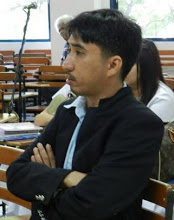“Schools are enthusiastic about the technology’s promise, but short of the money and trained faculty to extract many of its benefits…In many schools, PCs have failed to aid students’ learning or improve test scores, or equip them with the analysis and communications skills that today’s workplace demands, according to studies. The problems include a reliance on paper lesson plans that don’t factor in technology, and inadequate teacher training and technical support.”
Most of us realize how easy it is to throw computers into a school to meet requirements of various regulatory types and call this 21st Century Learning. Actually using these effectively in the classroom is another matter entirely.
“If you’re just sprinkling the technology on top of the curriculum, it’s not as compelling,” says. Intel’s [Eileen Lento, a government and education strategist]. “Then you just have some expensive pencils.”…Other times, school boards buy computers to prove their technical savvy to politicians and parents, without thinking through how kids will actually use the machines. “
If we aren’t giving kids anything more than glorified typewriters or web skills that extend beyond Google and Wikipedia, then we certainly aren’t going to help them be competitive in a technology- and information-driven world. Rather, as is clear from the article, it’s time for some very serious thought on the part of educators as to just what purpose computers in a classroom will serve.
Ironically despite the Fact that the Philippines is a BPO (meaning Business Process Outsourcing) country, most of its Public primary and secondary schools do not use Computers for class room instruction.
Although there are only selected public (meaning state owned )primary schools that has computers for classroom instructions there must be efforts on using focused computer applications to identify students’ strengths and weaknesses in math and literacy and use the data from these applications to modify instruction. The particular applications we’ve chosen also automatically provide some differentiated instruction for students who don’t require a more serious intervention.
At the secondary level, we’re still defining curriculum around the technology. At the moment, students are becoming adept at research online and most have solid skills with productivity apps, but we still have a long ways to go genuinely integrating the tools and training teachers to build technology-driven lessons instead of merely having kids type their papers.
In college, only those who are specializing in ICT are trained with computers, most other specializations end up with students using Google or wikipedia for “research”, for the lack of the term. More than ever today, instruction with the use of computers must be utilized to ensure that students problem solving skills be more enhanced in today's competitive world, and not just to use html to design and code more designs onto one's Facebook or Friendster page.
We still aren’t having students use collaboration tools or access enough primary sources online. We still don’t have enough students actually finding and communicating with human contacts who can provide them with interesting, relevant, and useful information. Our students taking Spanish aren’t talking over Skype or Gmail voice/video with kids in Spain or Mexico, or our students taking Arabic cant even communicate with somebody in the Middle East or Malaysia. You get the picture. We have many ways to go. Those who have ideas can feel free to email the author or even write articles or blogs about them.
(Blogger's note:I've read and was inspired and borrowed Chris Dawsons article with “what to do with computers in the schools” and set the scene in the Philippine setting to see the trends in ICT education in the Philippines. )




No comments:
Post a Comment